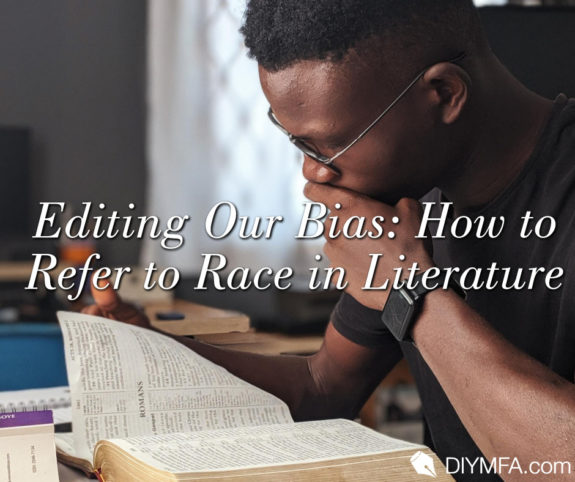With discussions and movements surrounding racial equality growing every day, writers around the world are having to step back and look at the world we love so much. From a lack of Black and Own Voices writers on bestseller tables to everyday racist and bigoted terms that sneak below our editing radar, we writers and editors need to examine our use of language and edit out our bigotries.
But Wait, My Book Is About…
Yep. That’s the first thing many writers think when we start talking about portraying race in fiction. It’s okay and necessary to have a diverse cast of characters in your book. Writing characters or even a main character with a race other than your own can be difficult and has many possible literary traps to fall into. While our works may not be inherently racist, we still need to edit racial bias on a few levels. Here’s how to do it.
Tell Your Own Experiences
First, ask yourself if the story you are telling is really yours to tell. This all comes down to the experiences and emotional journey of the character. If you could easily switch the race of the character to your own and the experience would read the same, then your use of race is likely not a problem or something that will offend many readers (though there will always be a few).
Avoid Racial Stereotypes & Tropes
When changing the race of a character would make less sense for a reader, it can lead to tension because you may be relying on a racial stereotype or literary trope. While this may seem okay because “it’s been done before,” I challenge you to be more imaginative and break those stereotypes. This is part of being an ally to change.
Overt Racial Bias
Next, we look at our sentences to determine if our wording is relevant, necessary, and/or overtly racist. Using racist terms or ethnic slurs (called ethnophaulisms) can shock or trigger readers in ways you might not intend. Instead of typing out these terms, find other ways to portray hate or bias your characters might need to experience to move their emotional journey forward.
Secretly Racist Terms
Editing the characters, tropes, and even sentences of your manuscript to better portray race and equality is important. But there are some everyday terms we use that have very shady origins. Unintended racism can still affect those who encounter it. Terms such as “ghetto,” when used in reference to Black culture, equate race with poverty and racial isolation. Even seemingly innocent phrases such as “he gyped me,” evoke negative feelings in reference to the Roma ethnic group commonly known as Gypsies.
So, How Can I Refer to Race in My Book Without Being Racist?
It won’t be the easiest road to edit our biases out of our work. After all, we need conflict to create a compelling story. But if that conflict is based on learned or historic bias, then you must tread lightly and examine your true motivations for your literary choices. It’s going to take practice to recognize, question, and find these characters, tropes, and words that until now many writers have toyed with without consideration—all in the name of literature.
But we can be the change when it comes to racist and racially biased literature. We can start a revolution for equality and visibility for Black and other unheard voices. Changing the way race is portrayed in literature can drastically change what the children of this world learn as they read, learn, and grow. Questioning yourself and your portrayal of race in your writing is the only way to create this equitable future.

Jeanette the Writer is an editor, coach, and freelance writer who wants to help others demolish their editing fears and finish their manuscript. As a former scuba instructor turned entrepreneur, Jeanette knows about putting in the hard work to pursue your passions. She has worked with authors, speakers, coaches, and entrepreneurs—empowering them with the right mindset, knowledge, and tools to help them tackle their editing goals. You can learn more about Jeanette by visiting JeanetteTheWriter.com.







